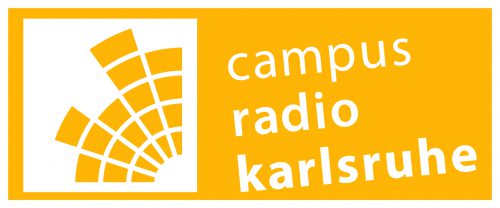Inklusion in der IT: Der Weg zur Vielfalt
von Campusradio Karlsruhe · Veröffentlicht · Aktualisiert

Tauche ein in die Welt der Informatik mit unserer neuen Episode, die sich den
Herausforderungen und Chancen für weiblich identifizierte Personen in der IT-Branche
widmet. Wir beleuchten die historische Entwicklung der Informatik, analysieren die aktuellen
Hürden und diskutieren innovative Ideen zur Förderung von Diversität.
Am Mittwoch, 22. Januar 2025 um 9 Uhr auf 104.8 UKW und im Stream (danach überall wo es Podcast gibt)
Shownotes:
Inhaltsangabe:
Diese Episode behandelt das Thema Diversität und Inklusion in der Informatik. Diskutiert
werden die aktuellen Herausforderungen und Chancen für weiblich identifizierte Personen in
der Informatik-Ausbildung und im Berufsleben. Es wird die historische Entwicklung der
Informatik von einem frauenfreundlichen Bereich zu einem männerdominierten Feld
beleuchtet und die größten Hürden erörtert, die junge Frauen und Mädchen davon abhalten,
eine Karriere in der Informatik zu verfolgen. Die Bedeutung von Vielfalt in der Informatik wird
analysiert und Ideen geteilt, wie mehr weiblich identifizierte Personen für dieses spannende
Feld begeistert werden können. Abschließend wird ein Blick auf die Zukunft der Vielfalt in
der Informatik geworfen und Maßnahmen zur Förderung von Gleichberechtigung und
Inklusion für alle Menschen, unabhängig von Geschlecht oder Geschlechtsidentität,
diskutiert.
Warum Du reinhören solltest:
Erfahre aus erster Hand, welche spezifischen Herausforderungen und Vorurteile im Bereich
der Informatik existieren und warum es so wichtig ist, diese Barrieren zu überwinden. Höre
inspirierende Geschichten und zukunftsweisende Ideen, die darauf abzielen, die
Informatikbranche inklusiver und vielfältiger zu gestalten. Wenn Du dich für die Zukunft der
Technologie und die Bedeutung von Diversität interessieren, ist diese Episode ein Muss.
Besuche uns auch auf unseren anderen Kanälen, wie Instagram, Facebook und X.
Insta: https://www.instagram.com/wmk_studium/?hl=de
X: https://x.com/wmkstudium?lang=de
Facebook: https://www.facebook.com/WMKstudium/?locale=de_DE
Interviewpartner: Julian Epple
Redaktion, Moderation und Produktion: Marvin Leyendeckers
Produktion des Intros: Elena Grunow
Thumbnail: Marvin Leyendeckers mit Microsoft Designer
Stichworte: Diversität in der Informatik; Frauen in der Informatik; Inklusion in der
Technologie; Geschlechtervielfalt IT; Gleichberechtigung in der Informatik
In Absprachen mit Julian kann die Folge überall gepostet werden.
Quellen:
[1] Khaled Albusays et al. “The Diversity Crisis in Software Development”. In: IEEE
Software 38.2 (2021), pp. 19–25. doi: 10.1109/MS.2020.3045817.
[2] Catherine M. Baker, Cynthia L. Bennett, and Richard E. Ladner. “Educational Ex
periences of Blind Programmers”. In: Proceedings of the 50th ACM Technical Sym
posium on Computer Science Education. SIGCSE ’19. Minneapolis, MN, USA: As
sociation for Computing Machinery, 2019, pp. 759–765. isbn: 9781450358903. doi:
10.1145/3287324.3287410. url: https://doi.org/10.1145/3287324.3287410.
[3] Shaowen Bardzell and Jeffrey Bardzell. “Towards a feminist HCI methodology:
social science, feminism, and HCI”. In: Proceedings of the SIGCHI Conference on
Human Factors in Computing Systems. CHI ’11. <conf-loc>, <city>Vancouver</city>,
<state>BC</state>, <country>Canada</country>, </conf-loc>: Association for Com
puting Machinery, 2011, pp. 675–684. isbn: 9781450302289. doi: 10.1145/1978942.
1979041. url: https://doi.org/10.1145/1978942.1979041.
[4] Christina Björkman and Lena Trojer. “What does it mean to know computer sci
ence? Perspectives from gender research”. In: tripleC: Communication, Capitalism &
Critique. Open Access Journal for a Global Sustainable Information Society 4.2 (2006),
pp. 316–327.
[5] Pernille Bjørn and Maria Menendez-Blanco. “FemTech: Broadening Participation
to Digital Technology Development”. In: Proceedings of the 27th ACM International
Conference on Multimedia. MM ’19. Nice, France: Association for Computing Ma
chinery, 2019, pp. 510–511. isbn: 9781450368896. doi: 10.1145/3343031.3355512.
url: https://doi.org/10.1145/3343031.3355512.
[6] Brianna Blaser et al. “Perspectives of Women with Disabilities in Computing”. In:
Cracking the Digital Ceiling Women in Computing around the World. Ed. by Carol
Frieze and Jeria Quesenberry. Cambridge University Press, 2020. Chap. 9, pp. 159
182.
[7] Patrica Collins and Sirma Bilge. Intersectionality. Key Concepts. Polity Press, 2020.
isbn: 9781509539697. url: https://books.google.de/books?id=fyrfDwAAQBAJ.
[8] Marta Dominguez-Folgueras. “It’s about gender: A critical review of the literature
on the domestic division of work”. In: Journal of Family Theory & Review 14.1
(2022), pp. 79–96. doi: https://doi.org/10.1111/jftr.12447. eprint: https:
//onlinelibrary.wiley.com/doi/pdf/10.1111/jftr.12447. url: https://
onlinelibrary.wiley.com/doi/abs/10.1111/jftr.12447.
[9] Katelyn Dryden. Implicit and Explicit Gender Stereotypes and Their Relationship to
Self-concept. 2013. doi: 10.17615/5n6h-pa28.
[10] Nathan Ensmenger. The computer boys take over: Computers, programmers, and the
politics of technical expertise. MIT Press, 2010. isbn: 9780262050937.
[11] FemTech. Accessed: 01.06.2024, 21:53. url: https://www.femtech.dk/.
[12] Janet Hyde et al. “The future of sex and gender in psychology: Five challenges to
the gender binary.” In: American Psychologist 74.2 (2019), pp. 171–193. doi: https:
//doi.org/10.1037/amp0000307.
[13] Jane Margolis and Allan Fisher. Unlocking the clubhouse: Women in computing. MIT
press, 2002.
[14] Katrina Markwick. “Under the Feminist Post-Structuralist Lens: Women in Comput
ing Education”. In: Journal of Educational Computing Research 34.3 (2006), pp. 257
279. doi: 10.2190/0U13-7RVT-KE72-RCKB. eprint: https://doi.org/10.2190/0U13
7RVT-KE72-RCKB. url: https://doi.org/10.2190/0U13-7RVT-KE72-RCKB.
[15] Amado M.Padilla. “Research News And Comment: Ethnic Minority Scholars; Re
search, And Mentoring: Current And Future Issues”. In: Educational Researcher 23.4
(1994), pp. 24–27. doi: 10.3102/0013189X023004024. eprint: https://doi.org/10.
3102/0013189X023004024. url: https://doi.org/10.3102/0013189X023004024.
[16] H. W. Pretorius and C. de Villiers. “An analysis of the international discourse about
women in information technology”. In: Proceedings of the 2009 Annual Research
Conference of the South African Institute of Computer Scientists and Information
Technologists. SAICSIT ’09. Vanderbijlpark, Emfuleni, South Africa: Association
for Computing Machinery, 2009, pp. 179–186. isbn: 9781605586434. doi: 10.1145/
1632149.1632172. url: https://doi.org/10.1145/1632149.1632172.
[17] YolandaRankinandJakitaThomas.“TheIntersectionalExperiencesofBlackWomen
in Computing”. In: Proceedings of the 51st ACM Technical Symposium on Computer
Science Education. SIGCSE ’20. Portland, OR, USA: Association for Computing Ma
chinery, 2020, pp. 199–205. isbn: 9781450367936. doi: 10.1145/3328778.3366873.
url: https://doi.org/10.1145/3328778.3366873.
[18] Reza, Gema Rodriguez-Perez, and Meiyappan Nagappan. “Insights into nonmerged
pull requests in github: Is there evidence of bias based on perceptible race?” In: IEEE
Softw. 38.2 (2021), pp. 51–57.
[19] Eric Roberts, Marina Kassianidou, and Lilly Irani. “Encouraging women in computer
science”. In: ACM SIGCSE Bulletin 34.2 (2002), pp. 84–88.
[20] Davide Rossi and Stefano Zacchiroli. “Worldwide Gender Differences in Public Code
Contributions and how they have been affected by the COVID-19 pandemic”. In:
2022 IEEE/ACM 44th International Conference on Software Engineering: Software En
gineering in Society (ICSE-SEIS). 2022, pp. 172–183. doi: 10.1145/3510458.3513011.
[21] Jean Sammet. “Farewell to Grace Hopper—end of an era!” In: Communications of the
ACM 35.4 (1992), pp. 128–131.
[22] StackOverflow 2022 Developer Survey. Accessed: 25.05.2024, 18:05. url: https://
survey.stackoverflow.co/2022#developer-profile-demographics.
[23] Jakita O. Thomas et al. “Speaking Truth to Power: Exploring the Intersectional Ex
periences of Black Women in Computing”. In: 2018 Research on Equity and Sustained
Participation in Engineering, Computing, and Technology (RESPECT). 2018, pp. 1–8.
doi: 10.1109/RESPECT.2018.8491718.


